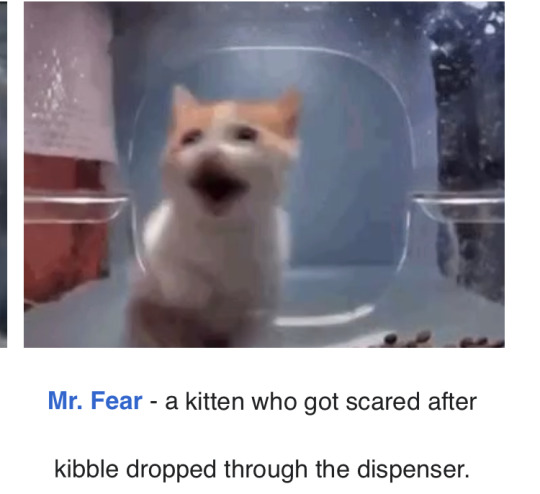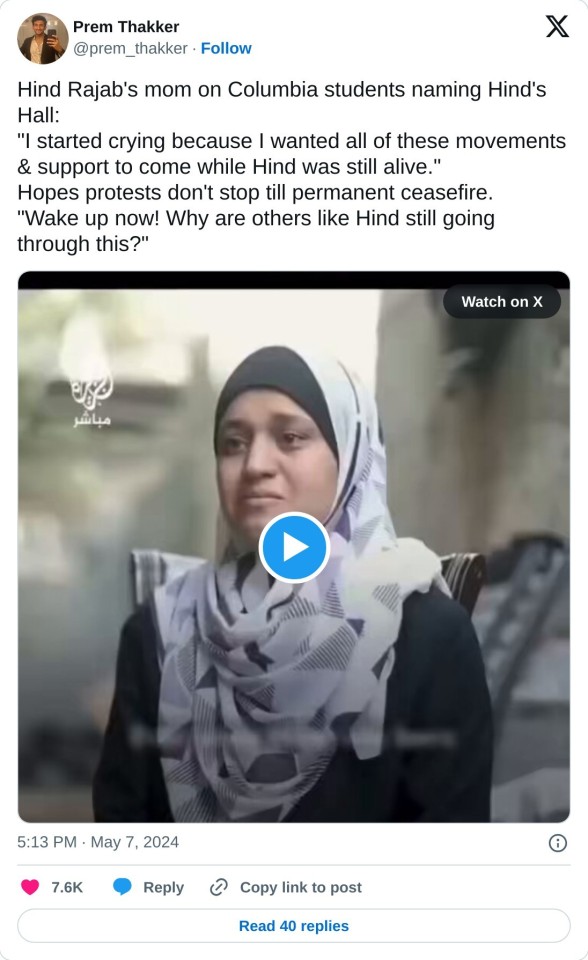Text


me with cat yesterday photographed by @susansontag
25 notes
·
View notes
Text

my and lovely beautiful style
[Begin ID: "Red and white shorthair cat laying on one side on a carpet with one paw tucked away and a light illuminating his face" End ID]
335 notes
·
View notes
Text
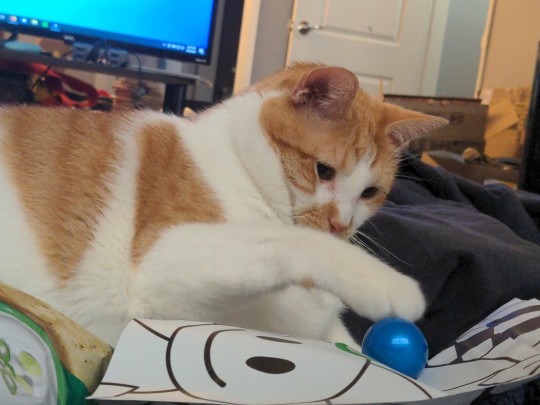
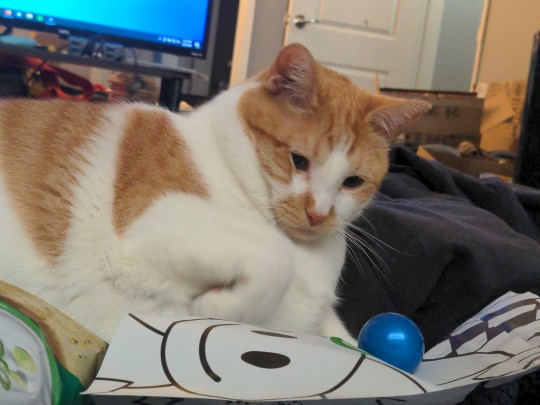
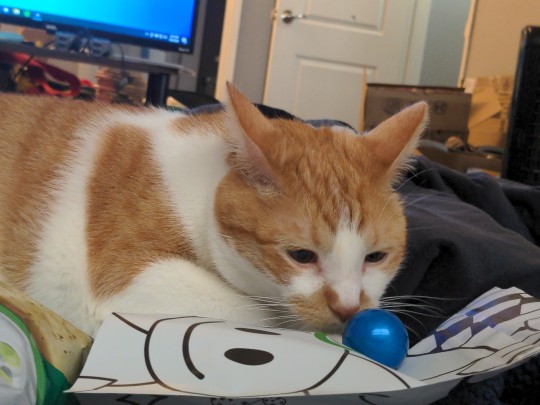
investigating a mysterious new ball
[Begin ID: "Image 1: A white and red tabby is laying down and putting his paw on and looking at a blue ball. Image 2: The same cat is leaning back looking at the ball and with his paw tucked away. Image 3: The same cat is leaning forward and sniffing the ball." End ID]
510 notes
·
View notes
Text

https://www.instagram.com/p/CGms-RiDVI9/
994 notes
·
View notes
Note
Have you ever dreamt about a tumblr mutual?
83 notes
·
View notes
Text
as much as i love the beef, here is a kind of take i have not seen here yet
2K notes
·
View notes
Text
Nearly 230,000 women and children are projected to die from hunger in Sudan in the coming months.
Now more than ever it is incredibly important to support community aid kitchens doing vital work on the ground.
3K notes
·
View notes
Text
Gene Roddenberry may have been vocal about ‘there’s no religion in the future’ but his Judaism and the Judaism of his writers so very clearly influenced a large majority of the work. You can’t divorce Star Trek from its Jewish roots
#people will come on tumblr and just say things that are wrong...#i do think there's something to be said for how nimoy's jewishness influenced spock and thus star trek of course#but let's not give those flowers to roddenberry#space the final frontier etc.#planet of wobbly rocks where the security guard got shot#social justice
21 notes
·
View notes
Text
I apologize for calling Macklemore cringe
#i don't think these are very good lyrics but i respect the effort#i really wasn't familiar with his game...#social justice
33K notes
·
View notes
Text
Cat just moved his paw slightly into my hand. Holding habds
12 notes
·
View notes
Text
Ask game: unpopular opinion edition <3
❤: Which character do you think is the most egregiously mischaracterized by the fandom?
🧡: What is a popular (serious) theory you disagree with?
💛: What is a popular ship you just can't get behind, and why?
💚: What does everyone else get wrong about your favorite character?
💙: Which character is not as hot as everyone else seems to think?
💜: Which character is way hotter than everyone else seems to think?
🤍: Which character is not as morally bad as everyone else seems to think?
🖤: Which character is not as morally good as everyone else seems to think?
💖: What is your biggest unpopular opinion about the series?
💔: If you had to remove one major character from the series, who would you choose?
💕: What is an unpopular ship that you like?
📖: If you had to remove one book from the series, which would you choose?
🏳️🌈: Which character who is commonly headcanoned as queer doesn't seem queer to you?
💀: If you had to choose one major character to die, who would you choose?
1K notes
·
View notes
Text
A large part of the Buffy fandom loves to cast Giles in the role of the Scoobies' collective Dad (and, for reasons that continually escape me, to cast Jenny Calendar as the Scoobies' collective Mom) but if you actually watch the show I think it's pretty clear that's not what's going on.
Yes, Buffy herself does increasingly view Giles as a substitute father figure (especially as her own father becomes less and less involved in her life). But while Giles does very quickly come to view Buffy as somebody whose safety and personal happiness he is responsible for and as somebody he is willing to break the rules to protect – as something like a surrogate daughter, in other words – he is, equally and just as importantly, utterly convinced he would be a terrible parent. (For example, see his preference to offer himself instead as, as he puts it, "some sort of rakish uncle" in Season 6’s Life Serial when Buffy suggests that seeing him again is “a little bit like having Mom back”.)
As a result of that conviction, Giles insists on maintaining an emotional distance that means that Buffy herself becomes convinced he doesn't want that sort of role in her life at all (see, for example, his refusal to accompany Buffy to the ice skating show in her father’s place in Season 3’s Helpless; his reluctance throughout Season 2 to let her into his home or to tell her about his personal life). The irony of course being that Giles does eventually take on the very role of Buffy's "shiftless absentee father" he didn't want to have in the first place: he hurts her by being a poor father figure precisely because he thought he would hurt her if he actually tried to be a father.
On the other hand, Willow doesn't view Giles as a father figure at all -- the show brings up several times the idea that Willow initially has something of a crush on Giles (most notably in Season 4’s Where The Wild Things Are, when she says as much outright, but it’s also strongly implied, for instance, in Season 3’s Faith, Hope & Trick, where Willow seems to agree with Faith’s description of Giles as “young and cute”) -- and likewise although Giles is clearly fond of Willow he is fond of her in the role of a favorite student who needs to be reminded not to overwork herself (or, in Season 6, as a former student who has made some regrettable decisions as a result of not listening to his advice). Willow is not his daughter, but rather she is his daughter Buffy's smart, hardworking friend who he thinks is a good influence on her. (Willow, let’s not forget, actually does have a father who seems to be fairly present in her life: he’s just not ever present on screen, because this isn’t Willow’s story.)
By contrast, Xander does clearly view Giles as some sort of idealized father figure. Even in the early years of the show he empathizes with Giles in a way none of the others do (cf. his reaction to Jenny's murder: "poor Giles"); he wants to make Giles laugh, he confides secrets in Giles he doesn’t tell any of his female friends. The more we see of Xander’s own home life the clearer the reason for this becomes: Xander’s biological father is awful. But this relationship is entirely one-sided and unvoiced – Giles would be very confused (and appalled) if he realized Xander felt that way about him. To Giles, Xander is Buffy’s silly and unreliable friend: the bad influence to Willow’s good influence. This is the context in which he agrees with Xander that Willow is “much, much better” than him. However much Xander might want it, Giles just doesn’t consider him as some sort of adopted son. He only associates with him at all because he is compelled to do so.
(I don’t know if it’s a deliberate writing decision that the Oxford-educated and generally fairly posh-seeming Giles has a largely positive and supportive relationship with middle-class teenagers like Buffy and Willow and a much frostier and arms’-length one with the far more working class coded Xander and Faith, but it’s certainly hard not to notice.)
Faith, on that note, doesn’t really have a relationship with Giles at all, something that she’s pretty openly bitter about (“You get the Watcher, you get the Mom … what do I get?” she asks Buffy in Season 3’s Enemies; you don’t need to think very hard to guess what word might replace ‘Watcher’ and parallel ‘Mom’ here). Yes, later on the Angel spin-off will try to retcon Wesley as “Faith’s Watcher”, but in the context of her initial appearance on the show it is clearly Giles who plays the role of the Watcher Faith wishes she had (recall that, when he first arrives, Wesley is meant to be Buffy’s new Watcher). But, in contrast to Xander, who wants a connection with Giles specifically, it’s a much more abstract kind of longing we’re dealing with here – we see repeatedly in Season 3 how desperate Faith is for any sort of parental figure, from Gwendolyn Post to the Mayor, and that’s what she’s angry about not having here.
Rupert Giles himself as a person isn’t somebody Faith has any strong feelings about (“Giles is okay”, Faith tells Mrs Post in Revelations, which is the closest she comes to having any opinion on him). For his part, and despite his promise to “look after” Faith at the start of this season, Giles has exactly the relationship with her that, one suspects, all Watchers are encouraged to have with their Slayer. He gives her orders (implicitly he’s still doing this as late as Doppelgangland) and he expects her to report to him for training, but if – as in Helpless – she doesn’t show up, he doesn’t have any other use for her. What she does with her life outside of killing monsters is not something we ever see Giles care about at all.
As for the other younger Scoobies … well
Anya is often treated as though she were a child, but she’s actually over a thousand years old and doesn’t have any sort of father issues at all, as far as we can tell. She certainly doesn’t seem to ever view Giles as a father. He’s sometimes a rival (“I know way more about demon dimensions than Giles does”), or an employer (“If it wasn't for me, Giles would be a terrified old man staring at a quarterly tax statement and wetting himself”), or an equal (“silent overseas partner”). But I don’t see any evidence of him being a substitute parent.
Tara doesn't even consider herself to be a Scooby for most of her time on the show; obviously her biological father is a monster but she first meets Giles as an adult and I just don’t think she ever has that sort of relationship with him (she’s still calling him “Mr Giles” at late as the middle of Season 5).
If Oz knew that Giles was a fellow guitarist – possibly even a guitar player who could teach him to play the dreaded Eb diminished ninth chord – he might have a more complex relationship with him. I don’t think he ever does learn this, though, so I’m pretty sure Giles is only ever just “that librarian Willow likes” as far as Oz is concerned.
We know, per Real Me, that Dawn doesn’t think Giles likes her. Given Dawn’s role as a part of Buffy, and what we know about Giles’ relationship to Buffy, I think that checks out; Dawn is the part of Buffy who Giles refuses to get close to because he thinks he has to be willing to sacrifice her to save the world; the part of Buffy who assumes her Watcher is reluctant to think about her inevitable death because the topic is too “unseemly”.
If you asked Cordelia to describe her relationship with Giles, and she didn’t have anything better to do or somebody more popular to talk to, she would – speaking slowly, as if talking to an idiot – explain that Giles is her school librarian, and that the library is the place the school keep all the books students might need to read.
#lmao @ the cordelia bullet point#but yes very true#it's what you do afterwards that counts#whatever happened to latin
16 notes
·
View notes
Text
Israel was openly critical of apartheid through the 1950s and 60s as it built alliances with post-colonial African governments. But most African states broke ties after the 1973 Yom Kippur war and the government in Jerusalem began to take a more benign view of the isolated regime in Pretoria. The relationship changed so profoundly that, in 1976, Israel invited the South African prime minister, John Vorster - a former Nazi sympathiser and a commander of the fascist Ossewabrandwag that sided with Hitler - to make a state visit.
Leaving unmentioned Vorster's wartime internment for supporting Germany, Israel's prime minister, Yitzhak Rabin, hailed the South African premier as a force for freedom and made no mention of Vorster's past as he toured the Jerusalem memorial to the six million Jews murdered by the Nazis. At a state banquet, Rabin toasted "the ideals shared by Israel and South Africa: the hopes for justice and peaceful coexistence". Both countries, he said, faced "foreign-inspired instability and recklessness".
Vorster, whose army was then overrunning Angola, told his hosts that South Africa and Israel were victims of the enemies of western civilisation. A few months later, the South African government's yearbook characterised the two countries as confronting a single problem: "Israel and South Africa have one thing above all else in common: they are both situated in a predominantly hostile world inhabited by dark peoples."
Vorster's visit laid the ground for a collaboration that transformed the Israel-South Africa axis into a leading weapons developer and a force in the international arms trade. [Alon Liel, former Israeli ambassador to Pretoria] who headed the Israeli foreign ministry's South Africa desk in the 80s, says that the Israeli security establishment came to believe that the Jewish state may not have survived without the relationship with the Afrikaners.
"We created the South African arms industry," says Liel. "They assisted us to develop all kinds of technology because they had a lot of money. When we were developing things together we usually gave the know-how and they gave the money. After 1976, there was a love affair between the security establishments of the two countries and their armies.
"We were involved in Angola as consultants to the [South African] army. You had Israeli officers there cooperating with the army. The link was very intimate."
Alongside the state-owned factories turning out materiel for South Africa was Kibbutz Beit Alfa, which developed a profitable industry selling anti-riot vehicles for use against protesters in the black townships.
—
By the 1980s, Israel and South Africa echoed each other in justifying the domination of other peoples. Both said that their own peoples faced annihilation from external forces - in South Africa by black African governments and communism; in Israel, by Arab states and Islam. But each eventually faced popular uprisings - Soweto in 1976, the Palestinian intifada in 1987 - that were internal, spontaneous and radically altered the nature of the conflicts.
"There are things we South Africans recognise in the Palestinian struggle for national self-determination and human rights," says [Ronnie Kasrils, former South African Intelligence Minister]. "The repressed are demonised as terrorists to justify ever-greater violations of their rights. We have the absurdity that the victims are blamed for the violence meted out against them. Both apartheid and Israel are prime examples of terrorist states blaming the victims."
There are important differences. Israel faced three wars of survival, and the armed struggle in South Africa never evolved to the murderous tactics or scale of killing adopted by Palestinian groups over recent years. But, from the 1980s, the overwhelming superiority of Israeli military power, the diminishing threat from its neighbours and the shift of the conflict to Palestinian streets eroded the sympathy that Israel once commanded abroad.
White South Africa and Israel painted themselves as enclaves of democratic civilisation on the front line in defending western values, yet both governments often demanded to be judged by the standards of the neighbours they claimed to be protecting the free world from.
"The whites [in South Africa] always saw their fate in a way related to the fate of the Israelis because the Israelis were a white minority surrounded by 200 million fanatic Muslims assisted by communism," says Liel. "Also, there was this analysis that said Israel is a civilised western island in the midst of these 200 million barbaric Arabs and it's the same as the Afrikaners; five million Afrikaners surrounded by hundreds of millions of blacks who are also assisted by communism."
When Israel finally began to back away from the apartheid regime as international pressure on the Afrikaner government grew, Liel says Israel's security establishment balked. "When we came to the crossroads in '86-'87, in which the foreign ministry said we have to switch from white to black, the security establishment said, 'You're crazy, it's suicidal.' They were saying we wouldn't have military and aviation industries unless we had had South Africa as our main client from the mid-1970s; they saved Israel. By the way, it's probably true," he says.
emphasis mine. this article is from 2006 and is a part of a two-part series investigating whether israel subjects palestinians to apartheid. the first part is here. since this article was published, amnesty international, human rights watch, and the united nations office of the high commissioner on human rights, among other organizations, have declared israel’s occupation of and blockade on palestine (the west bank and gaza strip, respectively) a form of apartheid.
88 notes
·
View notes
Photo
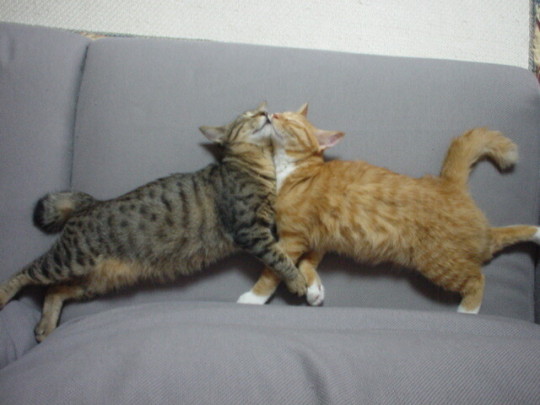
2K notes
·
View notes

